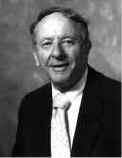|

|
Commentary
by Dr. Gerhard Falk |
Sabbatai
Zvi
was born in Smyrna, Turkey in
1626. He lived only 50 years but his life made a huge impact on the Jewish
community of his day because he and his followers believed that he was the
Moshiach (Messiah), the Anointed. Both of these words mean “smeared”, as in
the Latin unguere, to smear and in the Greek translation, khriein which also
means “to smear”. Christ means smeared. This is so because the ancient
Jewish kings were smeared with oil upon assuming the throne.
Sabbatai
Zvi studied the Talmud and the Zohar as a boy and also read the works of the
cabbalists. He was evidently physically appealing, had great powers of
persuasion and already in his youth gained a good sized following. He divorced
his two wives and became an ascetic, which is not usually a Jewish way of
living.
When Zvi
was 22 years old, in the year 1648, several events impressed him so much that he
concluded the Moshiach was about to arrive. First, the Zohar appeared to say
that 1648 would be the year of the Moshiach. Furthermore, Christians thought
that their book of Revelations indicated the arrival of the Messiah in 1666. In
addition, 1648 was also the year in which the Thirty Years' War ended. Even more
impressive for Jews was the horrible massacre of Russian Jews by the Ukrainian
killers under the leadership of Chmielnicki (Evidently, the Ukrainian tradition
of persecuting and killing Jews did not begin in World War II but was then
already three hundred years old).
Hearing of
these atrocities, Sabbatai Zvi proclaimed that these horrors were “the
birthpangs of the Moshiach” . Thereupon Zvi publicly pronounced the Name of
God, which had heretofore been considered a sacrilege. The Name was called Shem
Hamphorash and Martin Luther wrote a whole tract about this issue, which I
translated from the medieval German (If you want to read that diatribe, go to
the library and get my book The Jew In Christian Theology. The entire
book by Luther is in the appendix).
Upon
pronouncing The Name without consequences, Zvi declared himself the Moshiach and
was so regarded by his followers. Zvi was unable to convince very many in his
hometown or in the great Jewish community of Salonika of his mission, but when
he came to Istanbul (Constantinople) he was well received and supported by local
rabbis and scholars. He then went to Israel, at the time under Turkish
occupation, and later to Cairo in Egypt. On returning to Israel he met Nathan of
Gaza, who regarded himself the prophet Elijah.
Zvi stayed
in Jerusalem until the local rabbis asked him to leave for fear of the Turkish
authorities. Zvi returned to his native Smyrna and was this time well received
by the Jewish community, who thought him to be the Moshiach. In 1665 he was
publicly acclaimed as the Moshiach, as a great celebration was held by the Jews
of Smyrna and many others who had come there to see the deliverer. Zvi now
believed his own propaganda and issued decrees voiding Jewish laws.
As his
popularity increased, Zvi made more and more claims and finally pronounced that
he would lead the whole Jewish people back to Israel and there establish a
Jewish kingdom and govern the whole world.
Upon his
arrival in Istanbul with his followers, the Turks arrested Zvi and imprisoned
him. He was given the choice of death or conversion to Islam. He chose
conversion. Meanwhile, his followers continued to believe that he was the
Moshiach and found numerous excuses why his imprisonment and apostasy were not
real. Even while in prison, Sabbatai Zvi received delegations from many
countries who told him of the suffering of the Jews. These were of course people
desperate to find a way out of their miserable lives. Therefore they were
unwilling to admit that Zvi was an impostor. Even after the death of Sabbatai
Zvi there were Jews who continued to believe he had been the Moshiach and would
return. His followers continued to preach his doctrines all over Europe and some
predicted his immediate resurrection.
Desperate
people will believe anything. Even that Sabbatai Zvi was the Moshiach. Of course
the Moshiach came after all. One of his many names was Theodor Herzl. He was an
assimilated Hungarian journalist who founded the Zionist Congress in 1897.
Nothing about him was “supernatural” nor did his followers look upon him as
The Moshiach. The reason was, of course, that the Jews who returned to Israel
were themselves the Moshiach without knowing it.
Sabbatians,
as the followers of Sabbatai Zvi were called, continued to believe in his coming
even after most of them had adopted Islam as their religion. As late as the
1930’s there were Sabbatians in Salonika. That great Jewish community was
entirely destroyed by the Albanian Moslems, who fought together with the Nazis
in World War II and were sent to Salonika by Hitler to kill the Salonika Jews.
These are the same Albanians for whom NATO destroyed Yugoslavia and for whom
Jews are now testifying against Slobodan Milosovich, the former president of
Yugoslavia, who dared to defend his country against Osama bin Laden and his
Albanian followers.
The deeds
of the Albanian Moslems do not deserve Jewish support. Their words are self
serving lies. We Jews seem to have no memory. So consider the old Latin proverb:
Bonis (malis) exemplis, magis impetramus, quam bonis verbis. A good or
bad example makes a greater impression than good words.
Shalom u’vracha.
Dr. Gerhard Falk is the author of numerous publications,
including Grandparents:
A New Look at the Supporting Generation (with Dr. Ursula A., Falk, 2002),
& Man's
Ascent to Reason (2002).
| 